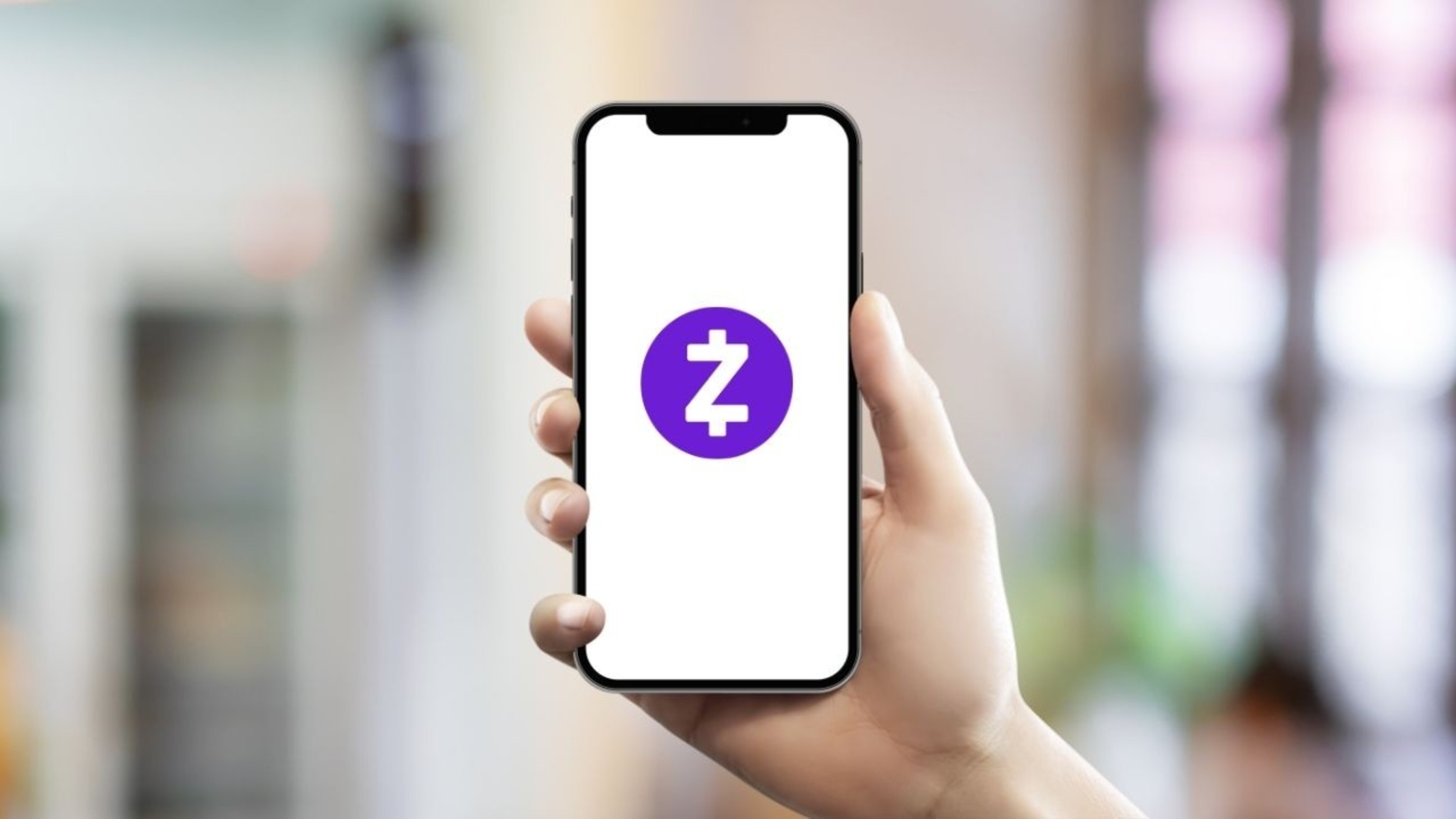Introduction
Welcome to our comprehensive guide on what information is needed to do a money transfer. Whether you want to send money to a friend or family member abroad, or make a business payment to a supplier in a different country, understanding the necessary details and requirements for a money transfer is essential. In this article, we will walk you through the step-by-step process, providing you with all the information you need to ensure a smooth and secure transaction.
Transferring money has become increasingly convenient in today’s digital age. With the numerous options available, such as banks, money transfer service providers, and online payment platforms, it’s important to know what details are needed to initiate a successful transfer. By having all the required information ready beforehand, you can streamline the process and avoid any delays or complications.
Throughout this guide, we will cover various aspects of the money transfer process, including the personal and recipient information required, the amount to be transferred, the purpose of the transfer, the chosen bank or money transfer service, applicable fees and exchange rates, accepted payment methods, proof of identity and address requirements, as well as tracking and confirmation of the transfer.
Whether you’re a first-time sender or an experienced user of money transfer services, this comprehensive guide will provide you with all the necessary details to perform a successful and hassle-free transaction. So, let’s delve into the specifics of what information is needed to do a money transfer.
Personal Information
When initiating a money transfer, you will need to provide certain personal information. This information helps ensure the security and legality of the transaction. The following are the key details typically required:
- Full Name: Provide your full legal name as it appears on your identification documents. This ensures that the recipient can verify your identity.
- Contact Information: Include your current phone number and email address. This allows the money transfer service to contact you if they have any questions or updates regarding your transaction.
- Date of Birth: Your date of birth is essential for age verification purposes. It helps comply with legal requirements and prevents unauthorized individuals from making transfers on your behalf.
- Address: Provide your residential or mailing address. This is crucial for identity verification and ensures that you receive any important correspondence related to the transfer.
- Identification Documents: Depending on the service provider and country regulations, you may need to provide a copy of your valid government-issued identification document, such as a passport or driver’s license. This is necessary for verifying your identity and complying with anti-money laundering regulations.
It’s important to ensure that the personal information you provide is accurate and up-to-date. Any discrepancies or errors can result in delays or even rejection of the transaction. Additionally, be prepared to provide additional information or documentation if requested by the money transfer service.
Furthermore, it’s crucial to keep your personal information confidential and secure. Only share it with trusted and reputable money transfer service providers. Be wary of any requests for personal information from unknown sources, as this could be a phishing attempt to steal your identity.
By providing accurate and complete personal information, you can ensure that your money transfer process proceeds smoothly and securely. Remember to double-check the details before submitting the transaction to avoid any unnecessary delays or complications.
Recipient Information
When making a money transfer, it is essential to provide accurate recipient information to ensure that the funds reach the intended person successfully. The following details are typically required:
- Full Name: Provide the full legal name of the recipient. Make sure to enter the name exactly as it appears on their identification documents to avoid any discrepancies or issues.
- Contact Information: Include the recipient’s phone number and email address if possible. This allows for better communication and may be necessary for some money transfer services.
- Address: Enter the complete and accurate address of the recipient, including street name, city, state, and zip code. This helps in identifying the recipient’s location and ensures that the funds are delivered to the correct destination.
Additionally, some money transfer services may require specific information to identify the recipient. This could include the recipient’s bank account number, mobile wallet ID, or any other unique identifier that the service provider utilizes.
It is crucial to ensure that all recipient information is entered correctly to avoid any delays or undelivered funds. Double-check the spelling and accuracy of the recipient’s name and address before proceeding with the transfer.
If you are unsure about any recipient details, it is always a good idea to communicate directly with the recipient and confirm the necessary information. This helps to ensure that the funds reach the right person and minimizes the risk of any errors or complications.
By providing accurate and complete recipient information, you can facilitate a smooth and successful money transfer process, giving you peace of mind that your funds will reach the intended recipient safely and securely.
Amount to be Transferred
One of the essential pieces of information needed for a money transfer is the precise amount you wish to send. The amount will vary based on your specific needs and the purpose of the transfer. When providing the amount to be transferred, keep the following in mind:
- Currency: Specify the currency in which you want to send the money. This is crucial, especially if you are transferring funds to a different country where the currency may be different.
- Exact Amount: Provide the exact amount you want to transfer. Be precise and ensure that the amount includes any applicable fees or charges.
- Conversion Rates: If you are transferring money between different currencies, the conversion rate will come into play. Be aware of the prevailing rates and any fees associated with currency conversion, as they can affect the final amount received by the recipient.
- Consider Additional Costs: Some money transfer services may have additional fees or charges, such as transfer fees or service charges. Factor these costs into the total transfer amount to ensure that the recipient receives the desired sum.
It’s important to ensure that the amount you provide is accurate and that you have sufficient funds to cover the transfer amount and any associated fees. Double-check the amount before confirming the transfer to avoid any complications or rejected transactions.
Keep in mind that some money transfer services may have limitations on the minimum or maximum amount that can be transferred. Familiarize yourself with the specific requirements of the service you are using to ensure compliance with their policies.
By providing the correct and complete amount information, you can ensure that the recipient receives the intended funds in the desired currency, making the money transfer process efficient and effective for both parties involved.
Purpose of Transfer
When initiating a money transfer, it is important to indicate the purpose of the transaction. The purpose of the transfer may vary depending on the nature of the transaction and the requirements of the money transfer service. Here are some common purposes:
- Personal Transfer: If you are sending money to a family member or friend for personal reasons, such as supporting them financially or providing a gift, it is essential to specify the purpose as a personal transfer.
- Business Payment: If the transfer is for a business transaction, such as paying a supplier or reimbursing an employee, indicate it as a business payment. Some money transfer services may require additional documentation or proof for business transactions.
- Educational Expenses: If you are transferring money for educational purposes, such as paying tuition fees or covering study-related expenses, specify the purpose as an educational transfer. In some cases, you may need to provide supporting documents or proof of enrollment.
- Charitable Donation: If you are making a donation to a charitable organization or contributing to a fundraising campaign, mention the purpose as a charitable donation. Some money transfer services have specific procedures or partnerships for charitable transfers.
- Other Purposes: If the transfer has a different purpose not covered by the above categories, describe it accurately to ensure transparency and compliance with the money transfer service’s policies.
Indicating the purpose of the transfer helps the money transfer service understand the nature of the transaction and ensure compliance with applicable regulations and policies. It also helps provide clarity for both the sender and the recipient. Therefore, it is important to accurately specify the purpose of the transfer when prompted.
Remember, different money transfer services may have varying requirements and documentation needed for different purposes. Familiarize yourself with their guidelines and provide any additional information or documentation requested to facilitate a smooth transfer process.
By clearly specifying the purpose of the transfer, you can ensure that the funds are used appropriately and that both parties involved are aware of the intended use of the transferred funds.
Bank or Money Transfer Service
When it comes to money transfers, you have the option to choose between using a bank or a money transfer service. Each option has its own pros and cons, so it’s important to consider your specific needs and preferences before making a decision. Here are some key factors to consider:
- Speed: Banks typically offer international transfers, but they can be slower compared to money transfer services. Money transfer services specialize in quick and efficient transfers, often delivering funds within minutes or hours.
- Currency Options: Banks usually support a wide range of currencies, allowing you to transfer funds worldwide. However, money transfer services may offer more competitive exchange rates and may have access to specific regional or local currencies.
- Transfer Fees: Both banks and money transfer services charge fees for their services. Compare the associated fees and consider the total cost of the transfer, including any hidden charges or additional costs.
- Convenience: Money transfer services often have user-friendly online platforms or mobile apps, making it easy to initiate transfers anytime, anywhere. Banks may require you to visit a branch in person, which can be less convenient, especially for international transfers.
- Security: Both banks and reputable money transfer services have measures in place to ensure the security of your funds and personal information. However, it’s important to choose a reputable service provider to minimize any risks.
- Customer Support: Consider the level of customer support provided by banks and money transfer services. Check if they offer 24/7 assistance and have a reliable customer service team to address any concerns or issues that may arise during the transfer process.
Before selecting a bank or money transfer service, take the time to research different options, read customer reviews, and compare their features and fees. Consider your priorities, such as speed, cost, and convenience, to determine which option best suits your needs.
Additionally, always ensure that the chosen bank or money transfer service is licensed and regulated by the appropriate authorities. This helps ensure that your funds are protected and that the transfer is conducted in a secure and compliant manner.
By carefully considering the various factors, you can make an informed decision about whether to use a bank or money transfer service, ultimately ensuring a smooth and efficient transfer of funds.
Transfer Fees and Exchange Rates
When performing a money transfer, it’s crucial to consider the transfer fees and exchange rates offered by the service provider. These factors can have a significant impact on the total amount received by the recipient. Here’s what you need to know:
- Transfer Fees: Most money transfer services and banks charge fees for their services. These fees can vary based on factors such as the transfer amount, destination country, and chosen payment method. Compare the fees charged by different providers to ensure you’re getting the best value for your money.
- Exchange Rates: If you’re transferring money between different currencies, pay close attention to the exchange rates offered by the service provider. Exchange rates fluctuate and can impact the final amount received by the recipient. Look for service providers that offer competitive exchange rates to maximize the value of your transfer.
- Hidden Costs: In addition to transfer fees and exchange rates, be aware of any hidden costs that may be associated with the transfer. Some providers may charge additional fees or markups that can impact the overall cost of the transaction. Read the terms and conditions carefully to uncover any potential hidden costs.
- Comparison Shopping: To ensure you’re getting the best deal, compare the fees and exchange rates offered by different money transfer services and banks. Many online platforms provide tools that allow you to compare costs and rates side by side. Take advantage of these resources to make an informed decision.
- Fee Waivers and Promotions: Keep an eye out for any fee waivers or promotional offers from service providers. Some companies may offer discounted or waived fees for certain transactions or during specific periods. Utilizing such offers can help you save on transfer costs.
It’s important to remember that transfer fees and exchange rates should not be the sole determining factors when choosing a money transfer service. Consider other aspects, such as speed, convenience, and reliability, to ensure an overall positive experience.
By being aware of the transfer fees and exchange rates, comparing different service providers, and taking advantage of any promotions, you can minimize costs and ensure that the recipient receives the maximum value from the transferred funds.
Payment Method
When it comes to money transfers, choosing the right payment method is essential for a smooth and convenient transaction. Different money transfer services and banks offer various payment options, so it’s important to consider the following factors when selecting a payment method:
- Bank Transfer: This is one of the most common and widely accepted payment methods. You can initiate a transfer directly from your bank account to the recipient’s bank account. It offers a secure and reliable method for transferring funds, especially for larger amounts.
- Credit or Debit Card: Many money transfer services and some banks allow you to make transfers using a credit or debit card. This option provides convenience, as it allows you to initiate transfers online or through mobile apps. However, keep in mind that there may be additional fees associated with using cards for transfers.
- Online Payment Platforms: Some money transfer services partner with popular online payment platforms, such as PayPal or Venmo. If you already have an account with one of these platforms, it can be a convenient and fast way to transfer funds.
- Cash Payment: Depending on the money transfer service and the destination country, you may have the option to make a cash payment at a physical location. This can be useful if the recipient does not have access to a bank account or prefers to receive cash directly.
- Mobile Wallets: In countries where mobile wallet services are prevalent, such as Kenya’s M-Pesa or India’s Paytm, transferring funds through a mobile wallet can be a quick and convenient option.
When selecting a payment method, consider factors such as the speed of the transfer, associated fees, availability in the recipient’s location, and the convenience of the payment method for both the sender and the recipient.
It’s also important to keep the security of your payment method in mind. Use trusted and secure payment platforms, and be cautious when sharing any financial information online. Additionally, ensure that the money transfer service or bank you choose has robust security measures in place to protect your personal and financial information.
By selecting a payment method that aligns with your needs and preferences, you can ensure a seamless and efficient money transfer process, providing both you and the recipient with a convenient and secure experience.
Providing Proof of Identity and Address
When it comes to money transfers, providing proof of your identity and address is a crucial step to ensure the security and legality of the transaction. Money transfer services and banks have specific requirements to verify the identity of the sender. Here’s what you need to know:
- Identification Documents: Most money transfer services and banks require you to provide a copy of a valid government-issued identification document. This can include a passport, driver’s license, or national identification card. Make sure the document is current, unexpired, and in good condition.
- Proof of Address: To verify your address, you may be asked to provide a recent utility bill, bank statement, rental agreement, or any other document that clearly shows your name and residential address. The document should not be older than three months to ensure its validity.
- Accuracy and Consistency: It’s crucial to ensure that the information provided aligns with the details you have provided during the registration or account setup process. Any discrepancies or inconsistencies can lead to delays or rejection of the transfer.
- Verification Process: Money transfer services and banks may request additional information or documentation for high-value transfers or if there are any suspicions regarding the transaction. Cooperate and provide the requested documents promptly to expedite the verification process.
- Confidentiality and Security: Ensure the secure transmission and storage of your identification and address proof documents. Only share them with trusted and reputable financial institutions or money transfer service providers. Be cautious of fraudulent attempts requesting your personal or financial information.
Typically, you will be asked to upload or submit these documents online during the registration or transfer process. Some providers may also require you to visit a physical location to present your identification documents in person for verification purposes.
By providing accurate and valid proof of your identity and address, you can ensure compliance with legal requirements and enhance the security and integrity of the money transfer process.
It’s important to note that the specific requirements and documents needed may vary depending on the country, money transfer service, and amount being transferred. Familiarize yourself with the specified guidelines and reach out to the service provider directly if you have any questions or concerns.
By adhering to the verification process and providing the necessary proof, you can establish trust and ensure a secure and successful money transfer transaction.
Tracking and Confirmation of the Transfer
Once you have initiated a money transfer, it’s important to have visibility into the progress of the transaction. Tracking and confirmation mechanisms provided by money transfer services and banks allow you to stay informed and provide peace of mind. Here’s what you need to know:
- Reference Number: After initiating the transfer, you will receive a unique reference number. This number serves as a tracking identifier for the transaction. Keep it safe and accessible, as you may need to reference it when contacting customer support or checking the status of the transfer.
- Online Account or App: If you’re using an online money transfer service or banking platform, you will likely have access to an online account or mobile app. Log in to your account or app to review the status of your transfer. Some platforms provide real-time updates on the transfer progress.
- Confirmation Emails or Notifications: Money transfer services often send email updates or notifications to confirm the initiation and completion of the transfer. Keep an eye on your inbox or enable push notifications to stay informed of any updates regarding your transaction.
- Customer Support: If you have any questions or concerns about the transfer or its progress, contact the customer support team of the money transfer service or bank. They can provide updates and assist you in resolving any issues.
- Delivery Timeframes: Depending on the chosen payment method and the recipient’s location, the delivery of the funds may take different amounts of time. Some transfers are instant, while others may take a few business days. Refer to the service provider’s guidelines or customer support for estimated delivery timeframes.
- Transfer Tracking Services: Some money transfer services offer dedicated tracking services that allow you to enter the reference number or other relevant details to track the transfer’s progress independently.
It’s important to note that the tracking and confirmation process may vary depending on the money transfer service or bank you are using. Some services offer more robust tracking features, while others may provide a more limited level of visibility.
By staying proactive and utilizing the tracking and confirmation mechanisms provided, you can have peace of mind knowing the status and progress of your money transfer. If you notice any delays or issues, reach out to the customer support team for assistance to ensure a successful completion of the transfer.
Conclusion
In conclusion, understanding the necessary information and requirements for a money transfer is crucial to ensure a smooth and successful transaction. By providing accurate personal and recipient information, specifying the purpose of the transfer, considering transfer fees and exchange rates, selecting the right payment method, and providing proof of identity and address, you can optimize the transfer process. Additionally, utilizing tracking and confirmation mechanisms allows you to stay informed and have visibility into the progress of the transfer.
When initiating a money transfer, take the time to research and compare different money transfer services and banks. Consider factors such as transfer fees, exchange rates, convenience, and security to make an informed decision. Ensure that you have all the necessary documentation and comply with the regulations and policies of the chosen service provider.
Remember to always prioritize the security of your personal and financial information. Choose reputable and trusted money transfer service providers and banks to ensure the safety of your funds and data. Be cautious of any fraudulent attempts and report any suspicious activities immediately.
Whether you are transferring money for personal reasons, business transactions, education expenses, or charitable donations, following the guidelines and providing the required information will help facilitate a smooth and efficient money transfer process.
By being well-informed and proactive, you can ensure that your money reaches the intended recipient securely and promptly, making the overall transfer experience positive for both parties involved.

























